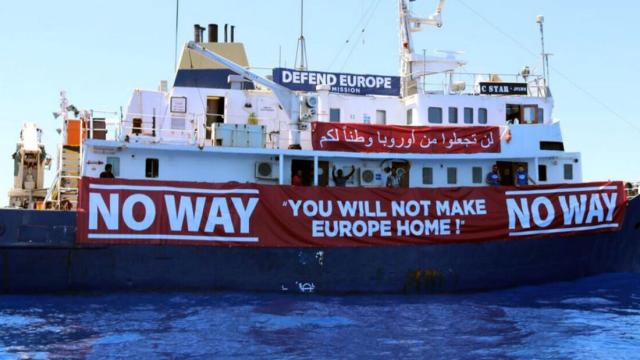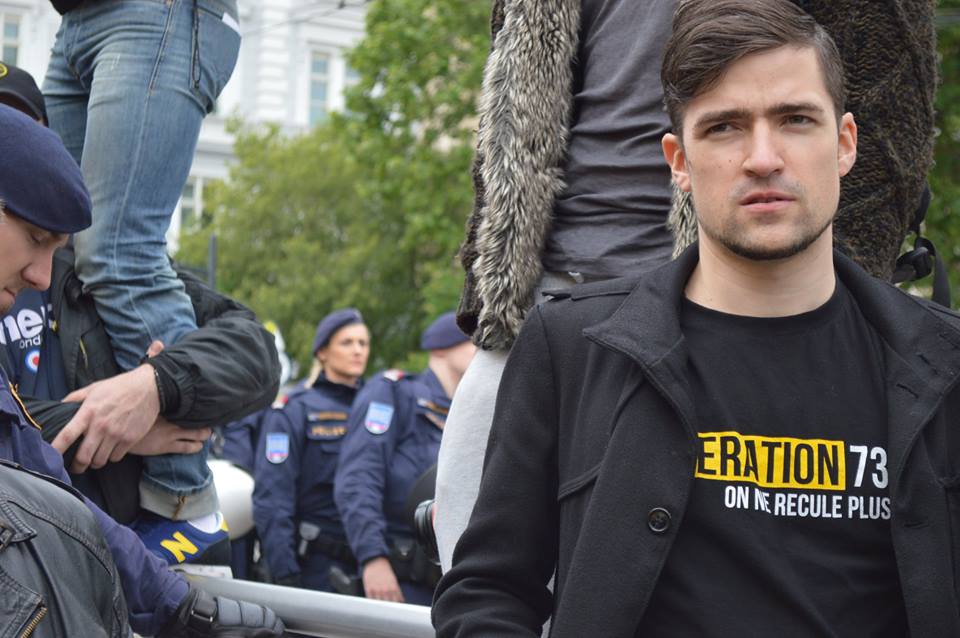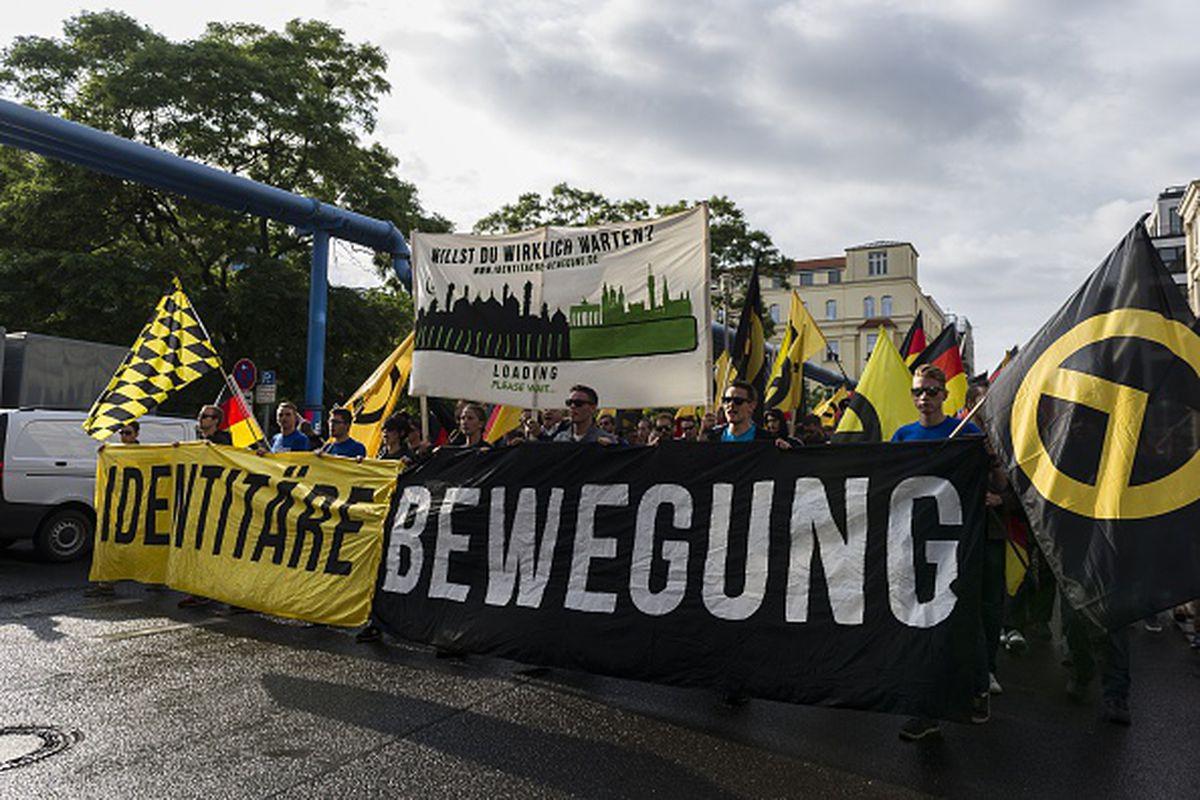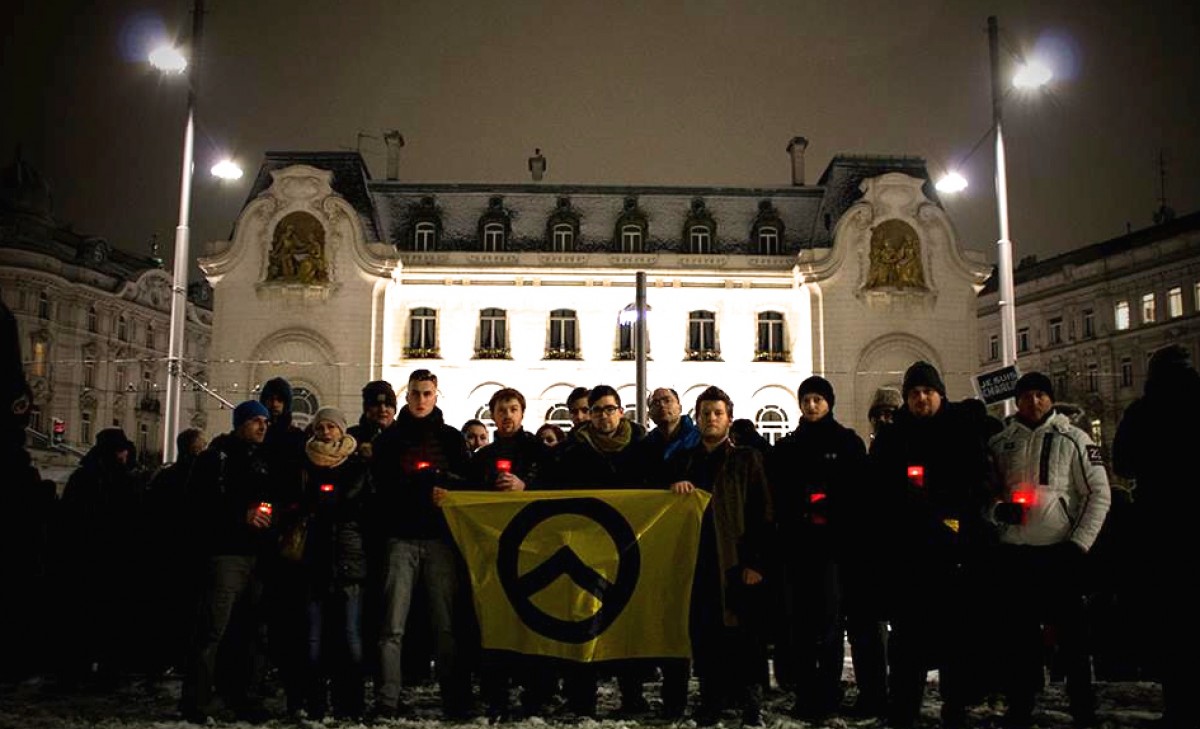
In May, the Austrian government attempted to hobble mobilization attempts by the far-right Identitarian movement as prosecutors in Graz levied charges of hate speech, property damage, forming a criminal organization and coercion against 17 members and sympathizers of the nationalist group, including party leader Patrick Lenart and spokesman Martin Sellner.
Warnings about Austria's Identitarians had been surfacing from HOPE not Hate, a far-right monitoring group, as researcher Simon Mjurdoch said: "[The arrests] could really undermine their Austria branch... Given how pivotal the branch is to the movement, therefore, this will no doubt have a real knock-on effect."
In response to the charges, the Identitarians' Facebook page, Generation identity, was removed from Facebook, further throttling the group's online reach. By all accounts, the Identitarian movement in Austria should have been contained.
Until, that is, their very public stunt of dressing the Viennese statue of Emperor Maria Theresa in a niqab, accompanied with a poster reading "Islamization? No thanks!"
Presenting themselves as – for lack of a better term – "fascist hipsters," the Identitarian movement is the latest in a wave of European populist movements that have coincided with the rise of white nationalist groups and the alt-right in the United States.
But where the alt-right seems content to wage an armchair-based flame war, Europe's far-right hipsters have urged their supporters to perform highly visible acts – such as chartering ships to prevent immigrants from landing in Europe from Libya. More recently, the Defend Europa Alps Mission has seen hundreds of far-right volunteers gather to patrol the Alps in an effort to stop the flow of illegal immigrants into the Old Continent.
Trying to Rebrand Fascism
The pro-active behavior of yet another extremist group appears to be the latest re-branding effort by European far-right protest movements that have come to prominence in recent years. Whereas organizations like Germany's PEGIDA (Patriotic Europeans Against the Islamisation of the Occident) were content to react to pro-immigration policies and events, Identitarians like to strike first and take control of the narrative.
Branding themselves as patriots and pushing for an "ethnopluralist society," where cultures are free to co-exist but remain clearly divided, Identitarians don't believe in forcible repatriation but in the limiting of religious freedom and freedom of expression for Muslim and other immigrant populations, until the point when they are simply forced to return to their countries of origin.
Even more cynically, the Identitarian movement in Hamburg, Germany, is branding itself not as a malicious cause but rather as a group that seeks to protect immigrants from the predations of an "asylum industry" that has sprung up with the refugee crisis.
"We will talk with them about false expectations of their host country, as well as reuniting with their families in their home country... should the first experiences be positive, we will try to expand this project across the country," Daniel Fiss, a spokesman for the Identitarian movement, told Deutche Welle in an interview.
Maintaining a cool exterior, the movement's spokesmen said they preferred to use their social media reach to push their agenda. Displaying a measured demeanor, Identitarians thus hope to paint themselves as the "cool" political alternative, making sure to re-brand any racist views as "cultural incompatibilities." Asked to comment on the recent rise of hate crimes in the UK, Damhnait McKenna, leader of Generation Identity Ireland, said: "That’s a loaded question... There is no rise in hate crime.’
A tagline in the Sunday Times described Europe's newest far-right movement: “Middle class and well-spoken, dressed in skinny jeans and New Balance trainers – meet the hipster fascists breathing new life into the British far right.”
Could They Be Succeeding?
Despite the backlash against publications that have presented the Identitarian movement in a favorable light, the far right's increasing traction in Europe seems a given at this point. The E.U. is now heading toward May 2019 elections for the European parliament, which could take the Union in an entirely new direction. The great fear of many is that the far-right now seems ever more likely to have at shot at taking the reins.
Already, the more traditionally minded Lega Nord (Northern League) of Italy succeeded in turning away a ship full of immigrants from the coast in a highly publicized stunt, while Germany's Alternative for Deutschland (AfD) has begun to threaten the hold of Chancellor Angela Merkel's firmly established Christian Democratic Union.
Already, Austrian Chancellor Sebastian Kurz, Hungarian Prime Minister Viktor Orban and the Italian far-right have begun to advertise the establishment of an "axis of the willing," a Euro-sceptic, isolationist coalition of far-right parties.
Yet it doesn't appear that their purpose is to undo the European Union altogether; after all, it's too big a prize to simply throw away, with lots of political and economic treasures to be plundered in the meantime. Instead, the far right wants to take over the European Union, eliminating the most liberal elements in one fell swoop.
At this point, the situation for Western democracy appears dire. Unless the European left and a more centrist establishment is able – and willing – to put up a unified front against the rising tide of the right, the possibility is real that it will take absolute control of the Union by next summer.
Then who knows? Perhaps this time, it will be thrifty Converses instead of jackboots that will tramp through the E.U. streets, gently pushing undesirables out of sight and out of mind.


















